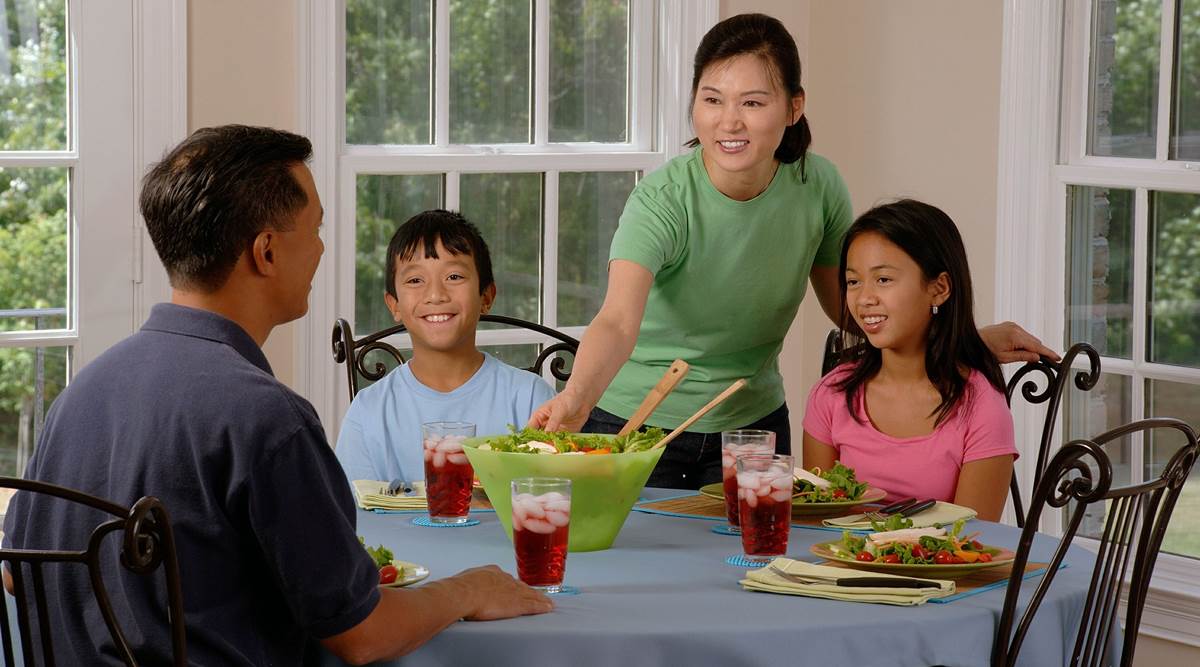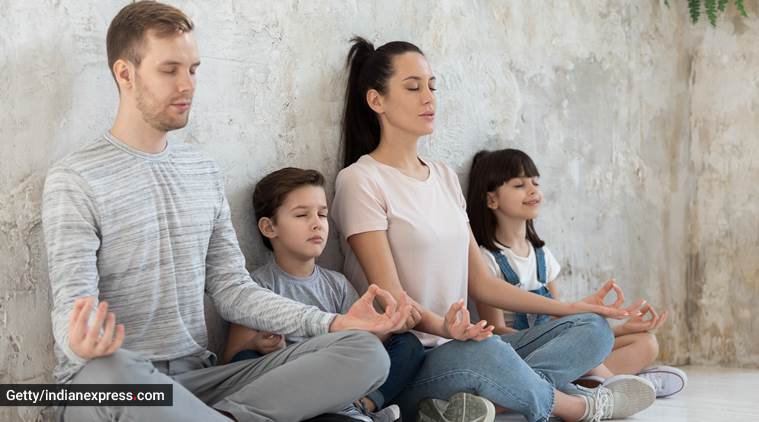
Families, by coming together, can open many routes of positive thinking and make changes that suit their lifestyle during such uncertain times.

By Tanya Khubchandani Vatsa
A lot has been always talked about and written of mandatory restrictions that are imposed, in order to control the transmission of the coronavirus, but unfortunately not a lot of importance has been given to the mental crisis caused by this virus, which today is overriding everyone’s emotions, be it of kids or elders. According to the latest report issued by the National Centre for Biotechnology Information, mental issues like stress, anxiety, depressive symptoms, insomnia, denial, anger and fear have been reported globally.
Apart from individual sufferings, Covid-19 has also placed a heavy burden on families, with parents who are still not settled with navigating their work-life balance and kids unable to gear up with virtual learning.
Maintaining a balance can be difficult but it’s not impossible. Families, by coming together, can open many routes of positive thinking and make changes that suit their lifestyle at this given time. Here are some positive activities that families can practice during a lockdown to stay sane.
1. Exercise
This may sound quite ordinary but here’s a reminder why it is important to add exercise to your family’s calendar. Since connecting as a family is becoming more and more difficult these days, due to an excessive distraction from devices that vie for our attention throughout the day. It’s important to bring everyone in the family under one roof at least during the beginning and by the end of the day.
With this new sedentary lifestyle due to virtual classes and work-from-home schedules, everyone tends to move really less, however physical exercise is an opportunity to get everyone together and improve the well-being of all family members.

Some more reasons to practise physical activities as a family:
-
Any physical activity signifies your healthy lifestyle choices; modelling it as a family practice will help you set an example as a parent.
-
While exercising, awareness plays an important role and it makes one feel fully present and engaged with the family.
-
Apart from these reasons, the primary aim is to set an intention of belonging and an environment of connection, which can act as a driving force for everyone in these difficult times.
2. Have a family screen time
This may sound bizarre, especially when parents are talking about limiting screen time, but indulging in movie time can help parents spend some extra time with their children and maintain their sanity levels. Parents can introduce their children to some old classics like Mrs. Doubtfire; Dr. Doolittle; Sound of Music; Honey, I Shrunk the Kids and The Avengers so that they are not stuck to Tom and Jerry and their animated favourites all day.
3. Follow a routine
Even though everyone is at home, it’s important to have some kind of structure. Kids usually do very well with routines as it helps them feel safe. This doesn’t mean every day has to be the same (even though currently, all days seem to blend into one endless one), or that you have to set alarms to be up and jumping.
Say if you start to work at 10:30 am then make sure your child gets on their homeschooling routine around the same time. By doing this everyone can at least finish some tasks of the day by lunch break and manage to have the afternoon meal together.
When it comes to routines of families with kids, communication and understanding between spouses play a very important role. So make sure that you as parents work together as a team and fill each other’s roles if demanded during any time of the day.
Some benefits of having a routine are as follows:
-
Having some kind of day structure will help you feel organised.
-
Following a routine can bring a sense of accomplishment to both the child and parent.
-
Helps spouses to keep a happy compromising mindset.
-
Reduces the chances of boredom, because everyone is aware of what to expect with the day.Also Read |Covid-19 and mental health: Anxiety is affecting fertility
4. Encourage everyone to participate in household activities
Having family at home throughout the day can add up responsibilities like extra meals, laundry and dishes, which can be overwhelming. But with additional responsibilities you also get more hands, all you need to do is pitch in and create a routine for everyone for chores as well.
Many parents think that household chores are off-limits tasks for children, but the fact is these times when both parents and kids are at home is a good time to introduce kids to some basic chores. It’s a life skill that needs to be learnt and the earlier the better, right?
Benefits of sharing the load of daily chores:
-
Reduces the burden on just one person, usually homemakers or mothers.
-
Learning chores can be exciting for kids, because they get an opportunity to do a task that is usually handled by adults.
-
Daily practise of chores can make a child work gradually towards independence.
-
Brings a sense of accomplishment and productivity.Also Read |Why parents need to encourage children to do chores
5. Facetime
Despite being in social-distancing, it is extremely important to stay connected with your family and loved ones. Anyone irrespective of the age group can feel isolated during such times, it’s important that as parents and elders we make kids understand that they are not the only ones and that we all are in this together.
Importance of Facetiming
-
If you make your kids Facetime their friends or anyone in the family they love, it will help them feel a sense of normalcy and connection.
-
Taking part or organising virtual parties and get-togethers can help everyone feel connected and spread little cheers!
6. Have some me-time
Silence is golden, and it’s important to let everyone in the family know and experience that. ‘Me time’ is usually associated with parents having some time for themselves but with this pandemic it’s no longer just about parents. Like elders, even kids need some time to reflect on their experiences and it’s good to allow them this time to sit alone and overcome the tech-drain.

Importance of me-time
– Helps kids to find emotional stability and think creatively.
– Gives the child a moment of self-connection in this overconnected world.
– Helps a child understand his emotions.
“If you don’t teach your children to be alone, they’ll only know how to be lonely,” said Sherry Turkel.
7. Practice gratitude
In juggling day-to-day life, all we tend to do is whine about everything. Of course, things have been hard lately but there will always be something to be grateful about. Parents need to teach their children to think about things that went ‘right’ on a particular day, instead of thinking about all the chaos that occurred.
“The single greatest thing you can do to change your life today, would be to start being grateful for what you have right now.And the more grateful you are the more you get,” said Oprah Winfrey.
Benefits of practising gratitude together as a family:
-
Contributes to positive mental health.
-
Teaches kids the aspects of happiness and resilience.
-
Improves relationships.
-
Creates a healthy environment for discussion.
-
Can be a mental health check meter, as it helps understand individual members’ thought processes.
Gratitude time set -up
-
Take a mason jar, decorate it along with the kids and place it on the dining table or centre table, basically a place where everyone can sit down together.
-
Keep some colourful chart paper cutouts or sticky notes beside it.
-
Now ask everyone to get together by the end of the day or by the end of the dinner time, to pick up one piece of paper and write down at least one thing they are grateful for in it and put it in the jar.
Having a positive attitude can only come with practice. It’s easy to think about negative things, but staying positive is a choice and a tough one. These activities are just small steps that can easily help change your family’s dynamics. They are a good start, which can gradually help you identify what other activities your family needs in order to maintain their sanity level.
(The writer is an author, healthcare strategist, and content creator.)
Source: Read Full Article